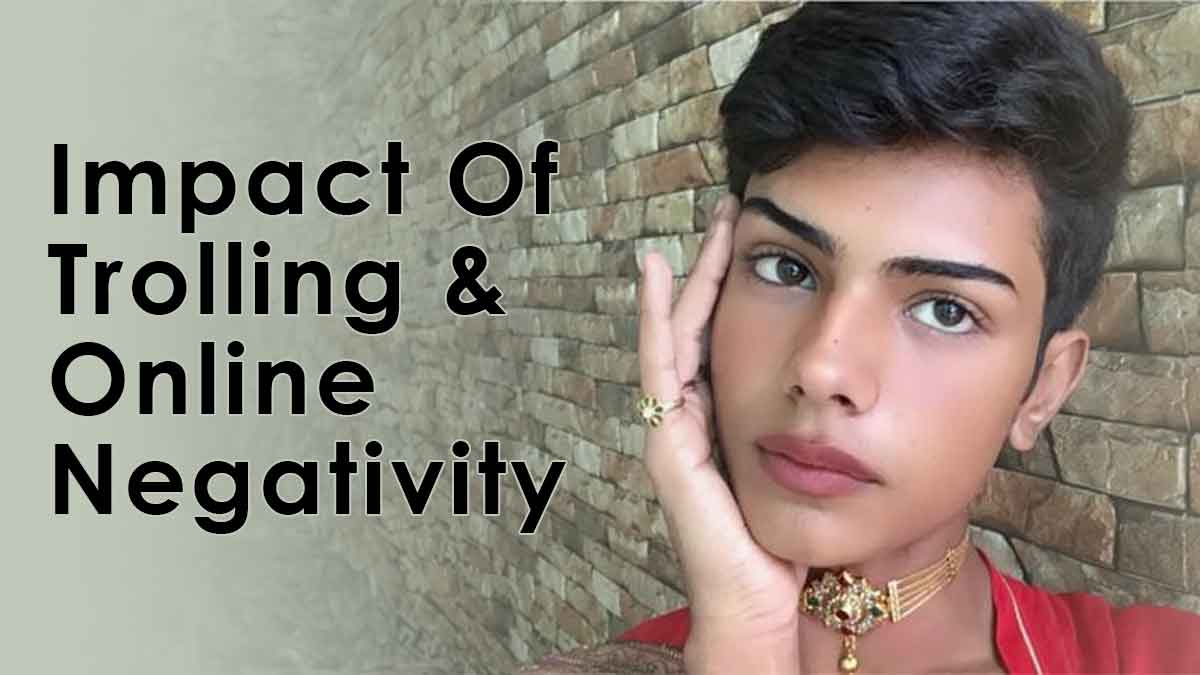
The pervasive rise of suicides among teenagers draws attention to the alarming intersection of trolling and online negativity. With the most recent suicide of a 16-year-old queer artist Pranshu, online trolling is more than just another form of abuse. The hateful comments on a transitional reel posted by Pranshu wearing a saree led him to take this drastic step. The trolling didn't end here, as some resorted to hateful comments even after his death.
View this post on Instagram
As adolescents navigate the complex landscape of social media, the repercussions on their mental health are increasingly evident. To understand the reasons and its impact on mental health, we spoke to Archana Singhal, Counsellor and Family Therapist, Delhi, who explained the influence of trolling on teen mental health and the broader impact of social media.
Influence of Trolling on Teen Mental Health

Trolling, a prevalent online phenomenon, significantly impacts the mental health of teenagers.
“The incessant exposure to derogatory comments, cyberbullying, and virtual harassment creates an environment fraught with anxiety, depression, and heightened stress levels for teens”, highlighted Singhal.
“The formative years of adolescence make them particularly susceptible to the detrimental effects of trolling, contributing to diminished self-esteem, feelings of isolation, and, in extreme cases, suicidal ideation”, she added.
Also Read: Spate Of Suicides: Is Compromised Mental Health Triggering People To Take Such A Step?
How Social Media Influences Mental Health

Social media, touted as a means of connection, paradoxically contributes to mental health challenges among teens. The constant barrage of carefully curated and often idealised representations fosters a culture of comparison, leading to feelings of inadequacy and low self-esteem.
Singhal said, “The addictive nature of these platforms further exacerbates stress and anxiety as teens grapple with the pressures of conforming to societal expectations, gaining social approval, and cultivating a digital persona.”
According to BMC Psychology, social media has sparked worries because it can exacerbate body image issues, enhance the risk of addiction and cyberbullying, encourage phubbing behaviours, and have a detrimental emotional impact.
Social Media's Influence on Suicide

The intricate relationship between social media and suicide cannot be ignored.
“Exposure to self-harm or suicidal content can have a contagious effect, particularly on vulnerable teens. Cyberbullying and online harassment intensify feelings of hopelessness, pushing some teenagers towards contemplating or committing self-harm”, emphasised Singhal.
The need for addressing these challenges necessitates collaborative efforts involving online platforms, mental health support systems, and the wider community.
Also Read: Mental Health Matters: Does Social Media Normalise Photoshop and Influence Body Dysmorphia?
How to Promote Positive Body Image and Self-Perception

Countering the negative impacts of online influences requires intentional efforts to promote positive body image and self-perception among teenagers. Singhal listed the following tips that should be followed widely:
- Schools, parents, and social media platforms must collaborate to enhance media literacy, enabling teens to discern between reality and curated online content.
- Open dialogues about self-esteem and body image, coupled with the creation of a supportive online environment, can fortify teens against the detrimental effects of trolling and online negativity, fostering resilience and well-being.
Bottomline
Singhal concluded, “The surge in teen suicides necessitates a comprehensive examination of the interplay between trolling, online negativity, and mental health. By understanding the profound influence of trolling on teen mental health, recognising the broader impact of social media, acknowledging its link to suicide rates, and actively promoting positive body image and self-perception, society can work collaboratively to create a safer and healthier digital space for vulnerable youth.”
[Disclaimer: This article contains information provided by a registered healthcare professional and is for informational purposes only. Hence, we advise you to consult your expert if you are dealing with any mental health issues for your overall well-being.]
How we keep this article up to date:
We work with experts and keep a close eye on the latest in health and wellness. Whenever there is a new research or helpful information, we update our articles with accurate and useful advice.
Current Version